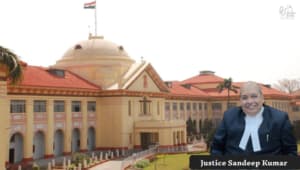The Central Government has told the Supreme Court that the 2025 Waqf Act amendments are only for regulation purposes and do not affect the religious rights of Muslims. The Ministry of Minority Affairs filed an affidavit stating that the new amendments deal only with secular issues like property records, administrative processes, and transparency, and do not interfere with religious practices or beliefs.
“The Waqf (Amendment) Act, 2025 very clearly limits itself to secular dimensions... not any matters of ritual, prayer, or fundamental Islamic obligations,” the affidavit said.
Read Also:- Soldier Invalided Due to Service Presumed Disabled from Military Duty Supreme Court Orders 50% Pension
The government explained that registration of waqf lands is not a new rule. Since the 1923 Mussalman Wakf Act, registration has been a legal requirement. The Centre said that removing 'waqf-by-user' does not harm existing lands already registered by April 8, 2025.
“There has been a clear and mandatory legislative regime... to enforce and implement registration requirements on all kinds of waqfs since at least 1923,” the Centre said.
Read Also:- Supreme Court Rebukes Rahul Gandhi Over Savarkar Remark, Pauses Defamation Case With Strict Warning
On the issue of including non-Muslims in the Waqf Boards, the affidavit stated that these bodies are secular and not religious representatives. They only perform administrative duties. Even with non-Muslim members, Muslims will still be the majority in both Central and State Boards.
“Waqf Boards are secular bodies... the presence of non-Muslims balances constitutional equities,” the affidavit added.
Responding to concerns about Government officers identifying encroachment, the Centre justified it by citing many cases where waqf claims were made over public lands and monuments without proof.
“The rationale... arises from repeated and documented instances where Waqf Boards claimed title over government land... without deed, survey, or adjudication,” it stated.
Read Also:- Supreme Court Rejects Punjab Govt's Plea Against Bail of Bikram Singh Majithia in NDPS Case
The government also addressed a new proviso in Section 2A, which says Muslim trusts can choose not to be governed by the Waqf Act. This is based on previous Supreme Court rulings and simply gives an option for using the general trust laws.
“The Amendment Act reaffirms that... regulation of waqf property must be subject to legal standards and judicial oversight,” said the Ministry.
The Centre urged the Court not to pass a stay order, stating that every law passed by Parliament is presumed valid. It submitted detailed documents including Parliamentary Committee reports and land data to show that the changes were made after thorough discussion.
The petitions will be heard on May 5. Meanwhile, the government promised to not implement some provisions and assured that existing waqf lands won't be affected if registered. It also agreed to pause appointments to Waqf bodies for now.















